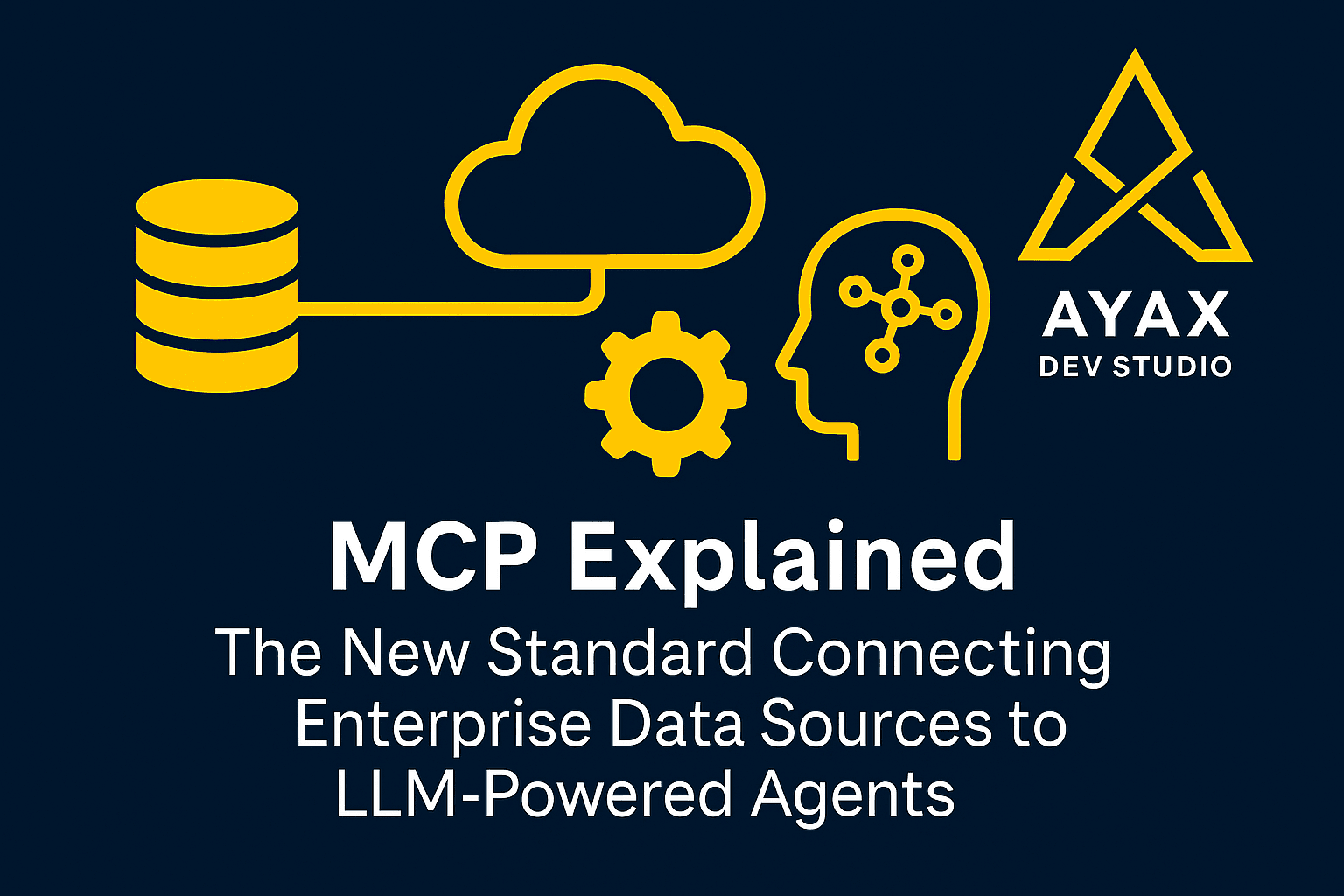Modern enterprises are eager to move beyond chatbots that only talk and toward AI agents that can act—querying warehouses, updating tickets, even drafting board decks. The obstacle has always been secure, consistent access to the right data and APIs. Model Context Protocol (MCP) solves that integration gap. Think of it as USB-C for AI: a single, open standard that lets any LLM-powered agent plug into business systems safely and at scale.
Why Integration Still Hurts
We’ve all seen the sprawl:
- Dozens of SaaS apps, each with its own auth scheme
- Legacy databases that live behind firewalls
- Compliance teams demanding airtight audit trails
Without a unifying layer, teams burn weeks stitching together brittle adapters. MCP replaces that patchwork with a governed, JSON-based contract every system and agent can understand.
What Makes MCP Different
Open Governance
MCP is stewarded by a vendor-neutral working group, ensuring no single platform dictates the rules. That openness accelerates tooling, SDKs, and community best practices.
Two Clear Roles
- MCP Server: Exposes data sources or business actions behind a consistent schema.
- MCP Client (the agent): Requests context or triggers actions in validated JSON, receiving structured results ready for the model’s context window.
Built-In Security
OAuth scopes, role-based access, and detailed logs come standard. Integrations inherit the same controls your CISO already trusts.
Streamlined Context Delivery
Agents don’t need the entire data lake. MCP lets them fetch just-in-time slices—keeping prompts lean, latency low, and token costs predictable.
What You Can Build Today
| Use Case | Outcome |
|---|---|
| Customer-support agent | Pulls order history, opens a return, and schedules pickup—without a human in the loop. |
| Finance copilot | Consolidates ERP, CRM, and market feeds to draft a cash-flow forecast. |
| Sales playbook bot | Scours CRM notes and product docs, then drafts a tailored proposal in minutes. |
Blueprint for Adoption
- Inventory your systems. List the APIs, databases, and file stores that matter.
- Deploy an MCP server. Open-source adapters exist for Postgres, MongoDB, REST, and GraphQL.
- Select an MCP-aware agent framework. LangChain, Microsoft AI Agents, and most modern SDKs already support the spec.
- Run a low-risk pilot. Start with internal analytics or report generation to prove value quickly.
- Scale behind a policy gateway. Enforce quotas, schema versioning, and observability from day one.
Strategic Payoff
- Faster time-to-insight: Real-time data replaces stale exports, shrinking decision cycles from days to minutes.
- Governance by design: Role scopes and audit logs keep compliance teams comfortable.
- Lower TCO: Streaming only relevant context curbs token spend and infrastructure overhead.
- Future-proof integrations: New LLMs inherit the same connections without code rewrites.
Final Thoughts
MCP doesn’t merely simplify plumbing; it unlocks a new class of autonomous, outcome-driven agents that work with your existing security posture instead of around it. Early adopters report double-digit productivity gains and a dramatic drop in bespoke glue code. As the ecosystem matures, MCP is poised to become the connective tissue of enterprise AI—and the foundation on which our agency builds next-generation solutions for data-heavy organizations like yours.
